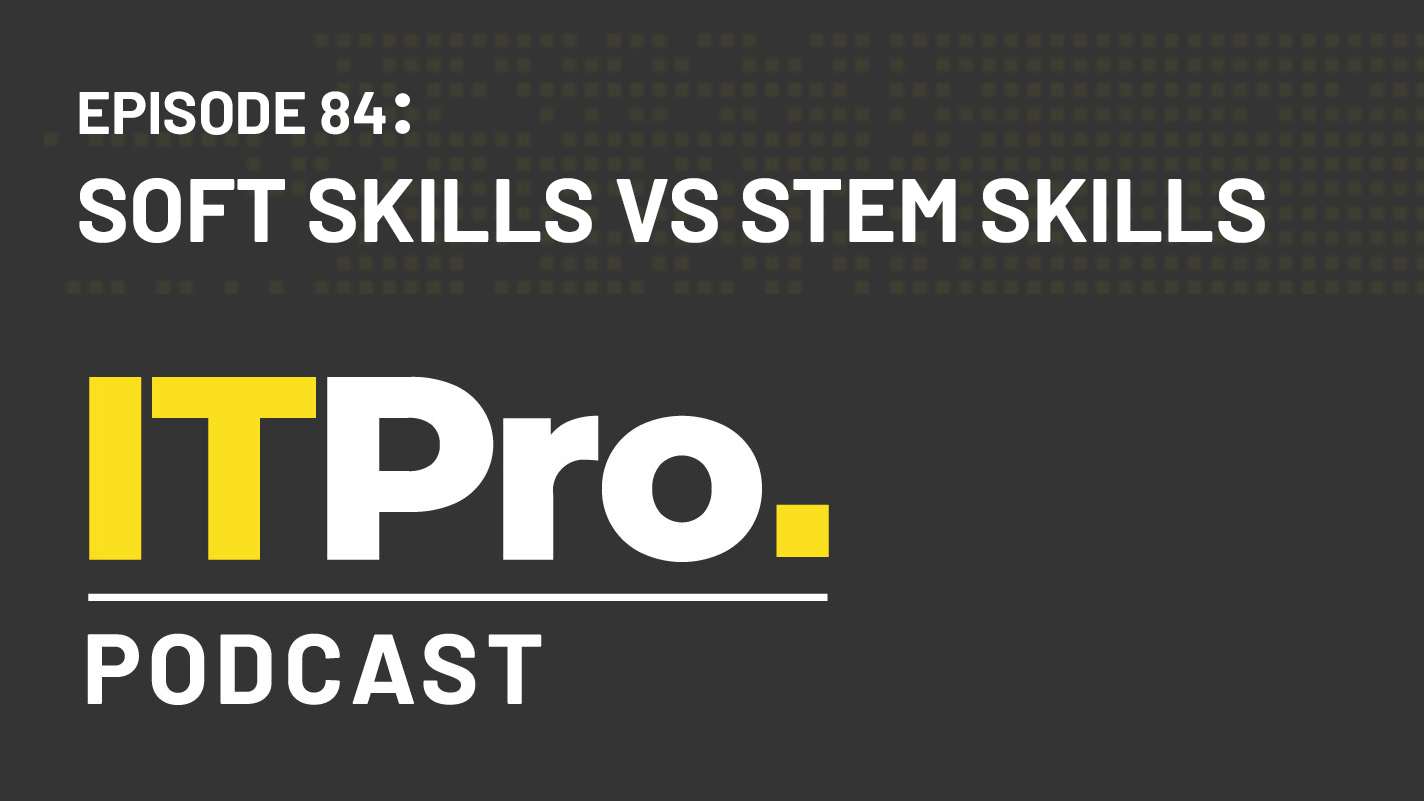Dropping ICT from curriculum 'will worsen UK's skills gap'
Phasing out ICT subject in favour of Computer Science will harm girls, poorer pupils and ethnic minorities, report warns

Replacing ICT at GCSE and A-Levels with Computer Science will lead to fewer students studying computing in the UK - with an expected reduction in female pupils, BME pupils and children from poorer backgrounds, according to new research.
The decision to remove ICT from the national curriculum, traditionally deemed too easy, and leaving Computer Science as the sole IT subject taught in schools from 2018/19, would fail to attract enough students to narrow the UK's skills gap, according to the University of Roehampton's annual computing education report.
Calling for an urgent inquiry into the impact ICT's removal from 2018/19 onwards will have on the tech education of young people, Roehampton university found that despite wide access to the Computer Science qualification in schools across the country, girls continue to be "heavily underrepresented", while poorer students underachieve at the highest level.
ICT and Computer Science, which have run alongside one another for four years, have "substantially different intakes", the report found, with a drop in the number of students taking any computing qualification at GCSE level or above since the introduction of Computer Science to the curriculum in 2013. The removal of ICT is likely to exacerbate this, according to the report's authors.
"What's clear from the report is that despite much good work to date, we still have a lack of young people with the work ready digital and computing skills that our economy needs," said Julia Adamson, director of education at BCS, the Chartered Institute for IT.
"We estimate that we need half a million more children to gain computing qualifications each year in addition to the half a million who are currently studying a range of computing qualifications [to close the skills gap]. Naturally, as part of this, we need to ensure that girls and students from poorer and ethnic minority backgrounds are not left behind."
Computing will become "more exclusive"
Girls comprise only 20% of Computer Science entries at GCSE, and 10% at A-Level, with 30,000 fewer girls taking any computing qualification at GCSE or above now compared to 2014, the report showed.
Get the ITPro daily newsletter
Sign up today and you will receive a free copy of our Future Focus 2025 report - the leading guidance on AI, cybersecurity and other IT challenges as per 700+ senior executives
Despite the growing influence of the Tech Talent Charter, a government-backed initiative to boost female representation in the tech industry, the report highlights concerns that a reduction in the number of girls taking up computing studies to begin with will lead to a smaller female tech workforce.
"It's worrying to see the numbers of girls undertaking IT subjects at GCSE decline even further, as it stretches an already struggling talent pipeline," said Amali de Alwis, CEO of Code First: Girls.
"We see the knock-on impact of this at University level as well - with UCAS figures showing only 13.7% of those who enrolled onto a computer science degree in 2017 were women. What will those numbers look like in 5 years time?
"We should all should be concerned that we will see a tech talent time draught in the coming decades, especially in relation to diverse tech and digital talent."
Meanwhile, there is a lower proportion of pupils who qualify for free school meals who are taking the Computer Science qualification compared to those studying ICT, meaning computer studies will become more exclusive when ICT is phased out, the report said. It also said fewer pupils who qualify for free school meals who study Computer Science achieve the highest grades (A/A*) compared to pupils who don't qualify for free school meals.
At GCSE, just 9.6% of pupils qualifying for free school meals achieved the top grades, versus 21.9% of other pupils, while at A-Level the gap was not as wide, with 10.3% of free school meal pupils receiving As or A*s compared to 17% of other pupils.
Overshadowing the findings is the fact the new Computer Science qualification is much harder than ICT, with students on average achieving half a grade lower in the subject than in others at GCSE, and around a sixth lower at A-Level.
This, in combination with other factors, means a reduction in students taking up computer studies is likely to worsen any skills shortage the UK is suffering, the University of Roehampton warned.
The Department for Education (DfE) defended its changes to the curriculum, citing "major investments" and initiatives including the National Centre for Computing Education in Autumn 2018 and the launch of its 'Gender Balance in Computing Pilot Programme'.
"The computer science GCSE - first introduced in 2013 - is providing pupils with a gold standard qualification and, with input from industry experts, is equipping them with the skills they will need for the high-tech jobs of the future," said a DfE spokesperson.
"Entries for computer science continue to rise more quickly than any other subject, increasing year on year since its introduction.
"We have continued to offer schools a range of support to improve the teaching of computing since its introduction and are investing 84m of new funding over the next four years to upskill 8,000 computer science teachers and drive up participation in computer science, particularly amongst girls."
The education setup is failing to tackle the skills shortage
Attracting skilled workers is the biggest challenge for businesses, according to a recent Tech Nation report, with half of UK tech firms citing this as their biggest obstacle to success, while Parliament's Science and Technology Committee estimates that the UK's skills gap costs the economy 63 billion a year.
"The industry must work faster to tackle the low uptake of computing related subjects in schools to address the shortage, before it damages our ability to innovate," said techUK board member Sarah Atkinson.
"Furthermore, role models and mentors have a crucial role to play in the selection of computing subjects to further education. Hearing about experiences from those in the industry can provide a powerful example to students. This has been recognised as particularly important for girls where, in a typically male-dominated industry, meeting female role models illustrates it's a rewarding career option to pursue."
BCS welcomed the report, saying the education system must be sufficiently stocked with qualified and capable computing teachers if the UK is to deliver an adequate level digital skills to support the industry's needs.
"We need to attract, retain, and importantly, support even more outstanding and inspirational specialist computing teachers to join those who already do an amazing job in schools," said Julia Adamson, BCS's director of education.
"With the right support, computing teachers become more effective at developing pupils' advanced digital skills, increase the number of students gaining computing qualifications, and improve the grades that students achieve."
The Computer Science qualification was drawn up by the government in 2013 as part of a wider government effort to reform GCSE and A-Level IT subjects so they were "more academically demanding and knowledge based," according to a consultation document.
In light of the resulting drop in those taking ICT, the University of Roehampton called for an effort to increase the number of students sitting the new Computer Science qualification, while demanding more work is done to address the gender gap in computing participation.
Despite the gloomy picture overall, the report did find that girls are generally better represented when taking digitally 'creative' courses, and called for follow-up research in a number of areas, including into the ways computer science may be better integrated with creative work.

Keumars Afifi-Sabet is a writer and editor that specialises in public sector, cyber security, and cloud computing. He first joined ITPro as a staff writer in April 2018 and eventually became its Features Editor. Although a regular contributor to other tech sites in the past, these days you will find Keumars on LiveScience, where he runs its Technology section.
-
 Cisco names Oliver Tuszik as global sales chief
Cisco names Oliver Tuszik as global sales chiefNews Cisco has announced the appointment of Oliver Tuszik as its new executive vice president of global sales, who replaces Gary Steele.
By Daniel Todd
-
 AI will chew through the same amount of energy as Japan by 2030
AI will chew through the same amount of energy as Japan by 2030News The energy demand of AI data centers will top that of Japan by the end of the decade, new research shows – and that’s providing that energy grids can even keep up.
By Nicole Kobie
-
 The standard of tech education is letting businesses down
The standard of tech education is letting businesses downIn-depth Is there a disconnect between how schools and higher education teach technology skills, and the needs of business leaders?
By David Howell
-
 From Anfield to Apple: Liverpool FC is kickstarting a revolution in cyber security recruitment
From Anfield to Apple: Liverpool FC is kickstarting a revolution in cyber security recruitmentCase Studies The next generation of cyber talent is best scouted pitchside with former youth players armed to the teeth with the soft skills businesses are crying out for
By Connor Jones
-
 Two in three IT employers struggle to recruit staff with adequate digital skills
Two in three IT employers struggle to recruit staff with adequate digital skillsNews Three quarters (77%) of surveyed senior UK IT decision-makers claimed that they are currently facing a digital skills gap in their organisation
By Sabina Weston
-
 UK government initiative will help women return to the STEM workforce
UK government initiative will help women return to the STEM workforceNews The majority of women surveyed described the process of returning to the industry as “difficult” or “very difficult”
By Sabina Weston
-
 Why now is the perfect time to start a side hustle
Why now is the perfect time to start a side hustleIn-depth The pandemic has pushed many to re-evaluate their working lives, swelling a sector that's now worth £72 billion for the UK economy
By David Howell
-
 IT Pro Panel: Why IT leaders need soft skills
IT Pro Panel: Why IT leaders need soft skillsIT Pro Panel Technical skills are all well and good, but human-centric skills are the real differentiators
By Adam Shepherd
-
 One third of cyber security pros report experiencing workplace harassment
One third of cyber security pros report experiencing workplace harassmentNews Respect in Security has called on companies to make it easier and safer for employees to report harassment
By Sabina Weston
-
 The IT Pro Podcast: Soft skills vs STEM skills
The IT Pro Podcast: Soft skills vs STEM skillsIT Pro Podcast The UK’s level of ‘soft skills’ is dropping - so what can we do about it?
By IT Pro